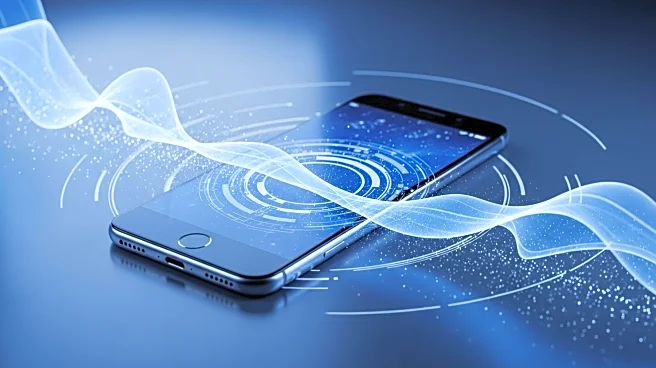What is the story about?
What's Happening?
Researchers from the University of Pittsburgh and the University of Minnesota have conducted a study on the potential of smartphone sensor data to detect behaviors associated with various mental health disorders. The study, led by Colin E. Vize and Whitney Ringwald, suggests that passive data collection from smartphones could provide clinicians with more reliable information about patients' mental health symptoms. The research expands on previous findings by linking sensor data to a broader range of mental health symptoms, rather than specific disorders. The study utilized data from the Intensive Longitudinal Investigation of Alternative Diagnostic Dimensions (ILIADD) conducted in Pittsburgh, analyzing information from 557 participants. The findings indicate that sensor data can correlate with six broad symptom dimensions and a general marker of mental health problems known as the p-factor.
Why It's Important?
The study's findings could revolutionize mental health assessment and treatment by providing clinicians with unobtrusive and continuous data about patients' behaviors. This approach may enhance the accuracy of mental health diagnoses and allow for more personalized treatment plans. By identifying symptoms that overlap across multiple disorders, clinicians can gain a more comprehensive understanding of patients' mental health. However, the technology is not intended to replace human clinicians but rather to supplement existing clinical care. The potential for smartphone data to inform mental health treatment highlights the growing intersection of technology and healthcare, offering new tools for addressing complex mental health challenges.
What's Next?
Further research is needed to refine the use of smartphone sensor data in clinical settings and to explore its potential applications in mental health treatment. Researchers aim to develop apps that can effectively utilize this data to support clinicians in diagnosing and treating patients. The integration of such technology into healthcare practices will require careful consideration of privacy and ethical concerns. As the field progresses, collaboration between technologists and healthcare professionals will be crucial to ensure the responsible and effective use of smartphone data in mental health care.
Beyond the Headlines
The use of smartphone data for mental health assessment raises important ethical and privacy considerations. Ensuring that patients' data is collected and used responsibly will be a key challenge for researchers and clinicians. Additionally, the technology's ability to detect symptoms across multiple disorders may prompt a reevaluation of traditional diagnostic categories, potentially leading to more holistic approaches to mental health care.















